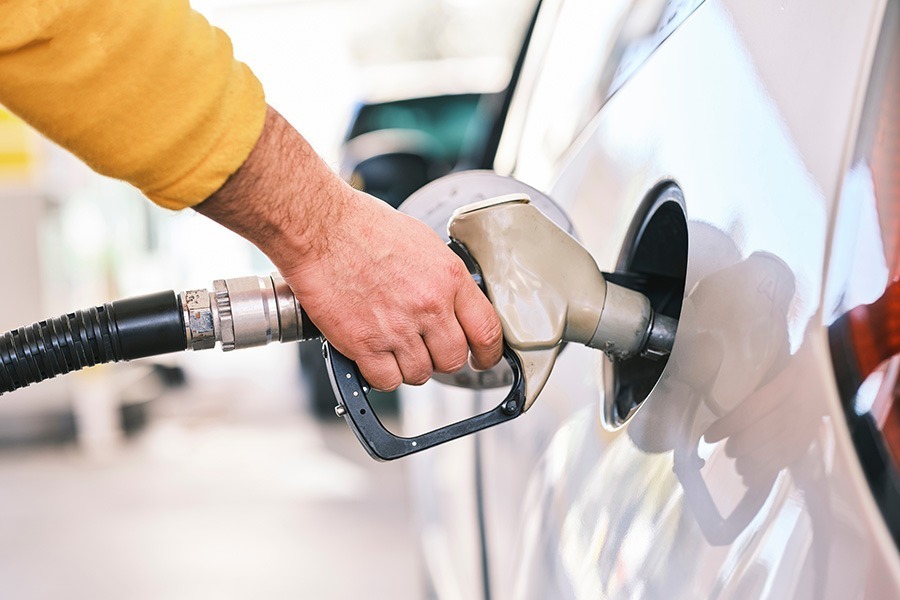Fuel costs were at an all-time high in 2022. Fuel cards have therefore become an indispensable tool for fleet managers to keep petrol, diesel and other expenses under control. In this article, we will show you why it makes sense for your company to use a fuel card and what you should look out for.
What is a company fuel card and how does it work?
A fuel card works in a similar way to a credit card and is accepted by petrol stations and other authorized retailers. The drivers pay cashless. The fleet manager can monitor fuel consumption and costs with little effort. Payments are debited monthly from an account linked to the card.
Advantages of a fuel card for companies
Cost control and transparency
With a fuel card, fleet managers keep track of fuel consumption and expenses for each driver and vehicle. Fuel consumption can be analyzed, inefficient driving patterns can be identified and appropriate measures can be taken for optimization through billing and reports. For example, savings can be made if drivers take into account the different daily prices and gas station prices.
Less administration
Instead of time-consuming expense reports and collecting receipts, fleet managers can access electronic transaction data that is automatically imported into the accounting or fleet system. This saves time and simplifies administration considerably.
Flexibility and comfort
Fuel cards are accepted by a wide range of gas stations and merchants. This gives drivers the flexibility to refuel at different locations.
Additional functions and services
Some fuel cards offer additional functions and services. These include GPS systems for locating vehicles, monitoring maintenance intervals and route planning. With these features, fleet managers can increase efficiency and reduce operating costs.
Security and control
Security functions such as PIN codes and fuel limits prevent unauthorized use or fraud. Fleet managers can make individual settings to control the refueling process and limit fuel consumption.

Tank data management: integration into fleet management
For a holistic view of operating costs, it is advantageous if the fuel data and costs can be imported into your fleet management system. This makes budget control considerably easier, especially with more complex price and filling station structures. Use the corresponding analysis functions to monitor fuel consumption, expenditure by vehicle or driver, consumption trends and much more. This information helps you to identify potential savings and derive effective measures to optimize costs.
Our fleet management system Fleet+ has import interfaces to all common fuel card providers for business customers, such as UTA, DKV, Shell, Aral and Esso. The imported tank data and costs are directly assigned to the corresponding vehicles. Comprehensive reports give you an overview of the cards used, fuel costs, comparisons and anomalies. You can also record card losses and blockages.

Fleet Management Software
Fleet+ offers import interfaces to all common fuel card providers. For full cost control and less effort in the fleet.
Comparison of fuel cards in the company: What you should look out for
- Selecting the right provider: Which provider meets your requirements? Compare conditions, fee structures and additional services to find the best solution for your company.
- Acceptance points and network: Check the network of petrol stations and retailers where the card is accepted. A broad network enables drivers to refuel at many different locations.
- Costs and discounts: Not only cents per liter are decisive, but the entire cost structure of the fuel card. This includes the setup fees, monthly basic fees and transaction fees. Also check whether the provider offers discounts or special conditions for fuel or other products and services.
- Security: Make sure the fuel card has adequate security measures to prevent unauthorized use or fraud. These include PIN codes, fuel limits and the blocking of lost or stolen cards.
- Customer support: The provider should offer reliable customer support. In case of questions, problems or loss of the card, it is important to get help quickly. Check the accessibility of customer support and the services offered.
Fuel cards for electric company vehicles
Fuel cards for electric company vehicles are adapted to the special features of electric mobility. Charging stations are available in public places such as parking lots, shopping centers or service stations. To use a charging station with a fuel card, the user must authenticate the card at the charging station. The charging station recognizes the fuel card and enables access to the charging infrastructure. During the charging process, for example, the charging station records the charging time and the amount of energy consumed and uses this for billing purposes.
Fuel cards for electric vehicles are often linked to a charging network and allow access to these charging stations, regardless of the operator. Some fuel cards for electric vehicles offer additional services, such as route planning tools that show the nearest charging stations or access to charging stations with faster charging power. Here, too, it is important to know the exact functions, conditions and charging networks of the Compare fuel card providers.
Guidelines for fuel cards in the fleet
There is a risk that employees may refuel for non-work-related purposes. In addition, loss or theft can lead to unwanted expenses if the card is not blocked in time. It is therefore important to define clear guidelines for the use of fuel cards, carry out regular checks and train employees accordingly .
Conclusion on fuel cards in companies
Fuel card management offers many advantages for companies. Cost control, flexibility and security are just some of the positive aspects. The fleet manager should check the provider and their conditions in order to avoid unnecessary costs and increase convenience.
With the right fuel card, you can manage your fleet more efficiently, reduce fleet costs and ensure smooth operations. By importing the fuel data into fleet management software, the total cost of ownership can be monitored even more quickly.
Find out more about fuel data management with our fleet software Fleet+ .







